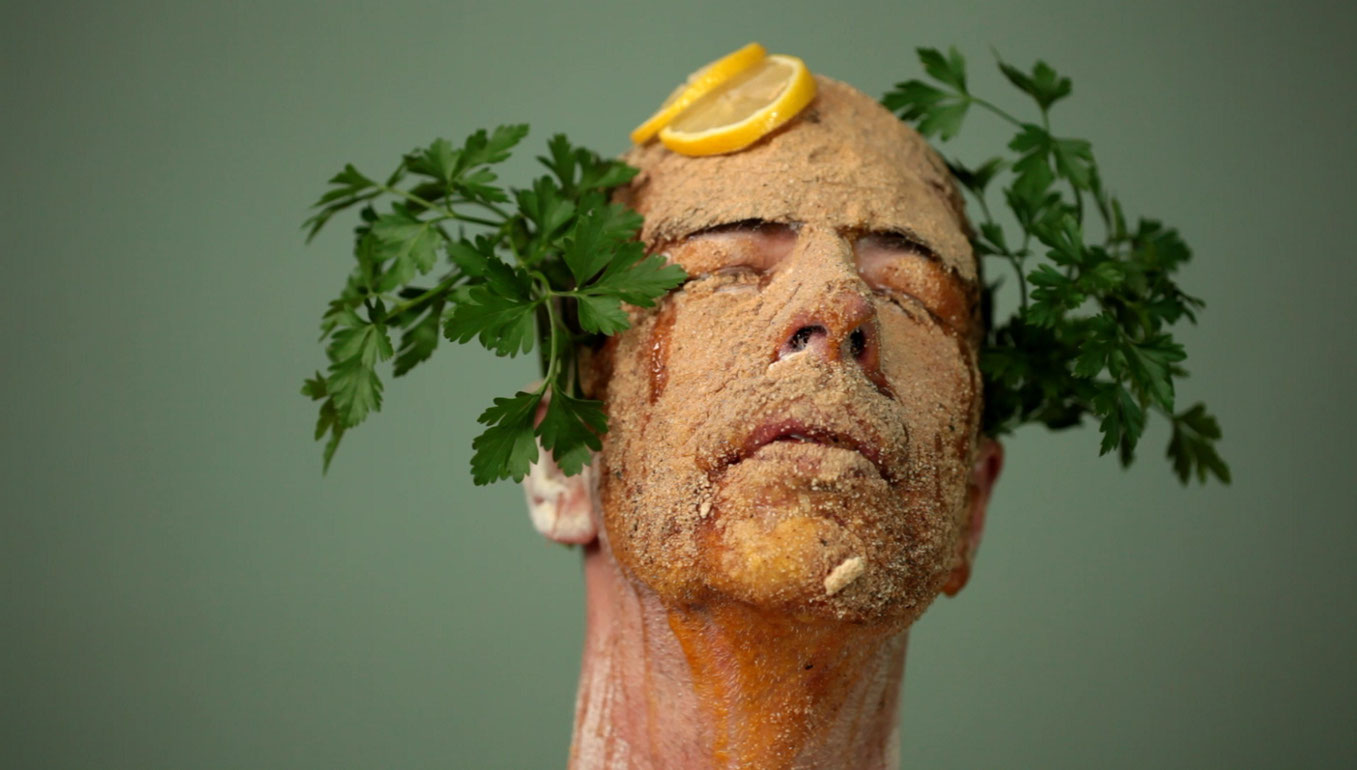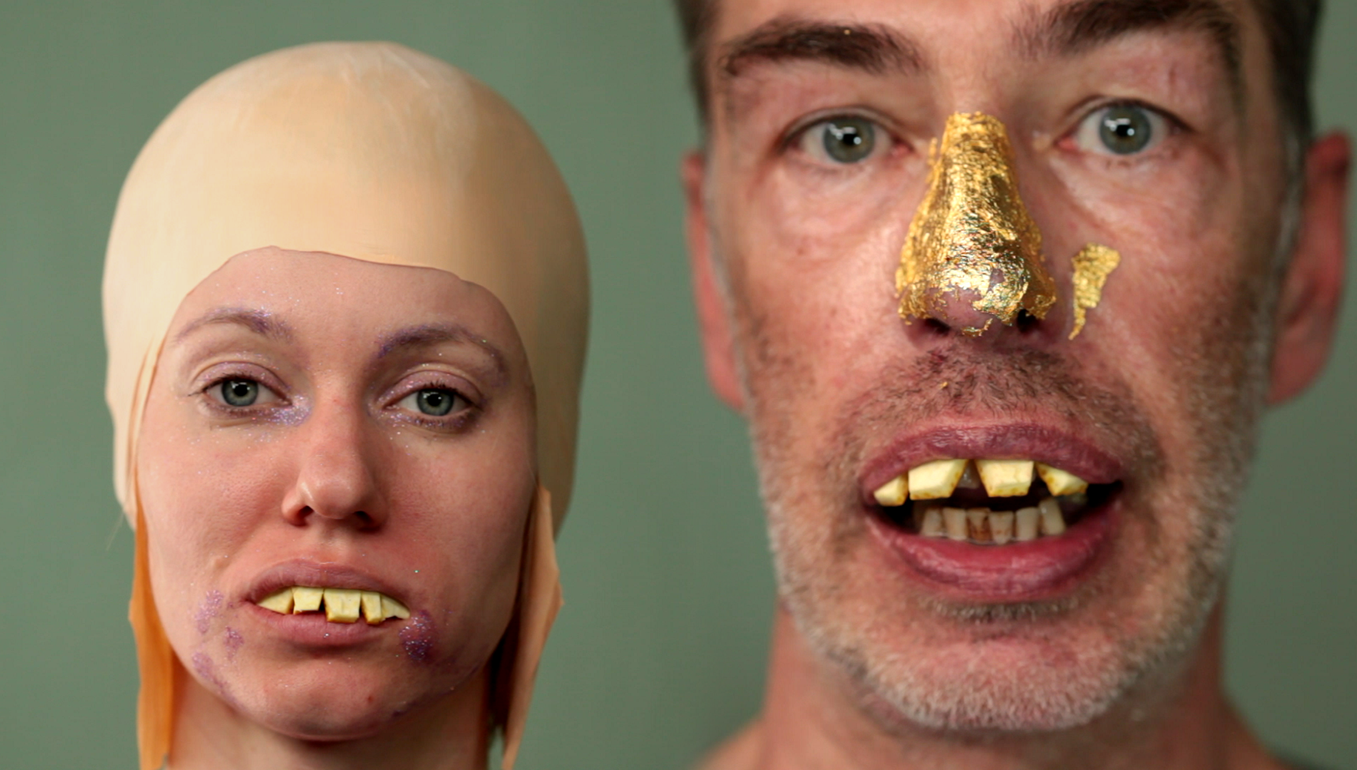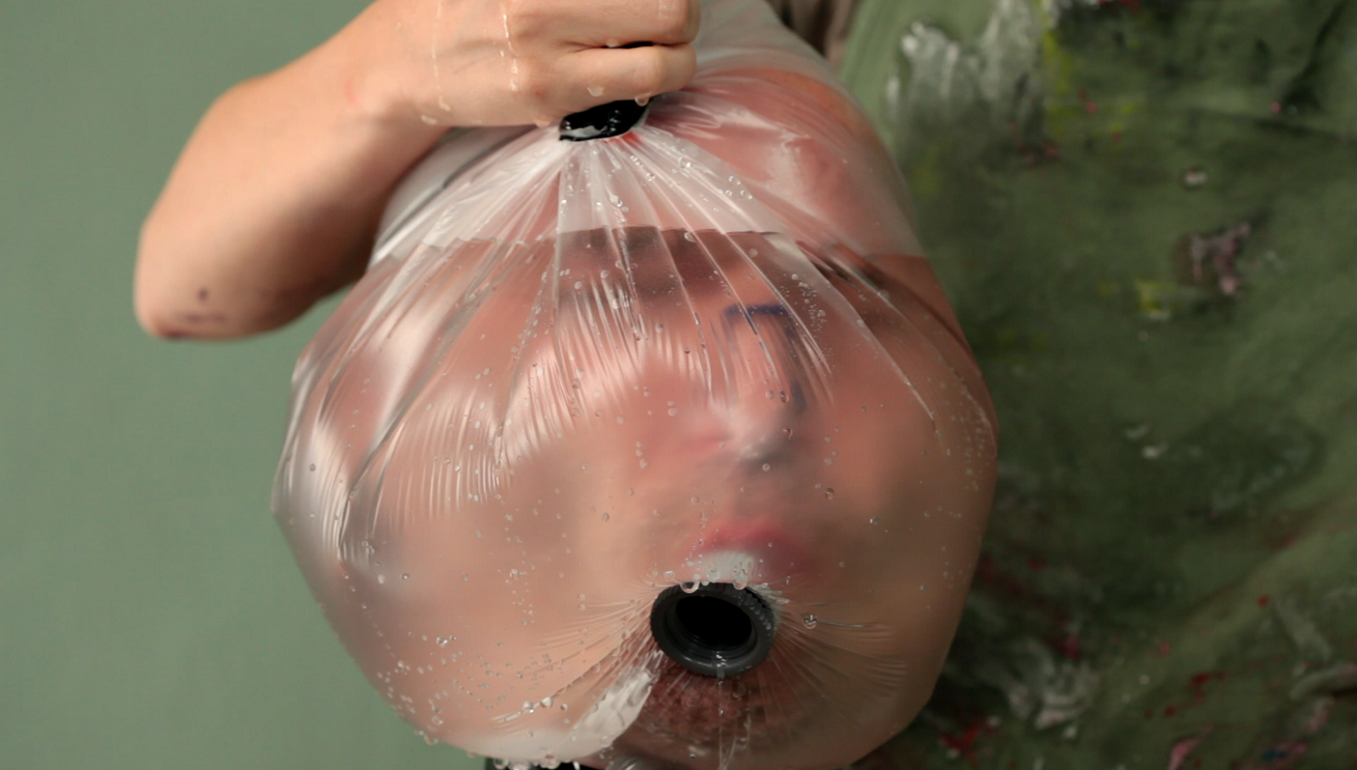TRAFO
Mug shots, the informal term for police or booking photographs, show the suspected lawbreaker in a severe frontal or side view. "To mug" means "to make faces," and the noun "mug" can be defined as "fool" or "blockhead" and also "face" or "kisser," mirroring how the short film TRAFO, which focuses on the human face, is pregnant with meaning.
From the very beginning Horn´s 12-minute film oscillates between the criminal and the fool who makes faces: The countenances of three men and three women, forced into categories for the purpose of criminological classification, soon start acting up. A shriek rings out here, the tip of a tongue flashes impudently there, eyes are crossed. Whether this is farce or drama, the viewer can never be certain. The mood changes constantly. In brief shots hair´s combed in an almost tender way, teeth are brushed. But these scenes of attention and care are soon interspersed with gestures that distort faces, expose them to ridicule, do them violence. One´s laced up and decorated. Choking is followed by laughter. The clues are confusing. What´s happening here? Medical examinations? Fun? Torture? Is it consensual? Even the music leads the viewer down conflicting paths.
"The face is a portrait of the soul" in the words of Cicero, calling to mind the old ideal of making humankind´s glimmer of the divine, its dignity and greatness, visible in portraits. Horn´s pictures of faces are however far from being portraits. Dignity´s no longer a factor. The protagonists´ visages transform, turn increasingly into projection screens, sculptures. Rather than becoming simply caricatures of their selves, the human turns into an object. The more dangerous and extreme the treatment they undergo, the more the individual is diminished. The face becomes an allegory for existence.
(Katrin Feßler)
Translation: Steve Wilder
TRAFO
2014
Austria
12 min



